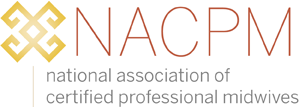The National Association of Certified Professional Midwives (NACPM) , American College of Nurse-Midwives (ACNM), and Association of Women's Health, Obstetric and Neonatal Nurses (AWHONN) strongly opposes the forced leave of the Department of Health and Human Services (HHS) National Center for Disease Control staff that oversees the Pregnancy Risk Assessment Monitoring System (PRAMS). This action will have profound consequences for mothers and babies, increasing the already unacceptable rate of maternal and newborn mortality in the US. PRAMS is widely recognized as the ‘gold standard’ maternal mortality database and monitoring system.
Since 1988, PRAMS has been an essential public health tool, providing critical data on maternal and infant health outcomes. It has allowed researchers, policymakers, and healthcare providers to identify high-risk populations, monitor health trends, and implement evidence-based interventions that save lives. Its abrupt suspension threatens maternal and infant health nationwide by eliminating one of the most comprehensive data sources available for tracking disparities, guiding public health efforts, and improving care. This data is essential for driving quality improvement initiatives, holding all maternal health professionals —including obstetricians and midwives—accountable and able to continue to deliver safe, effective, and culturally sensitive care rooted in evidence based practices.
Data saves lives. NACPM and ACNM have long recognized that continuous, high-quality data collection is fundamental to reducing maternal mortality, addressing racial and economic disparities, and strengthening the maternal healthcare workforce. PRAMS has been instrumental in advancing health by documenting the impact of social determinants of health, including income, housing stability, and access to care. Without PRAMS, our ability to track progress and hold systems accountable for addressing disparities is severely compromised.
The United States already has one of the highest maternal mortality rates among high-income nations—(given US rates and some other countries) this decision only further undermines efforts to improve outcomes and address this ongoing crisis. Without PRAMS data, states lose a vital tool for allocating resources effectively, evaluating the impact of public health programs, and ensuring that taxpayer dollars are invested in policies proven to improve maternal and infant health outcomes. Data-driven public health initiatives help prevent costly complications, reduce unnecessary medical interventions, and support programs that improve long-term health—ultimately saving money while saving lives.
PRAMS data has directly led to critical policy advancements, including saving money by supporting, with data, the need to expand Medicaid postpartum coverage, integrate doula services, improve lactation support, and enhance mental health screenings for new parents. Additionally, this data has been instrumental in efforts to advance midwifery integration into the healthcare system, providing the evidence needed to support licensure, equitable reimbursement, and the inclusion of midwives in maternal healthcare policies. The loss, even if temporary, of this data not only undermines current policy efforts and if the data is scrubbed of information related to vulnerable populations sets back decades of progress in maternal and infant health, limiting our ability to build a more integrated, evidence-based, and patient-centered system of care.
We urge the CDC and federal policymakers to immediately reinstate PRAMS with no changes to the collection or publication of data and ensure that maternal and infant health remains a national priority. Without it, we lose the ability to make informed decisions that protect the health and well-being of families during pregnancy, birth, and the postpartum period.
Signed,
National Association of Certified Professional Midwives (NACPM)
American College of Nurse-Midwives (ACNM)
Association of Women's Health, Obstetric and Neonatal Nurses

